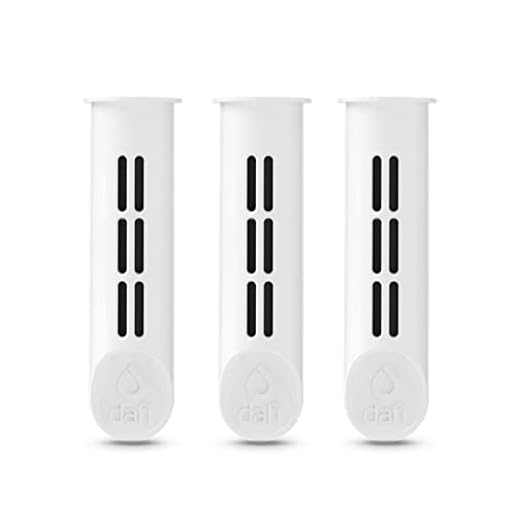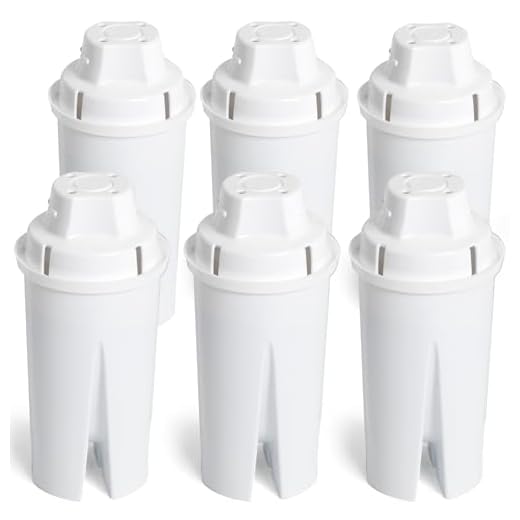




The Role of Certifications in Water Filters
Certifications serve as a critical benchmark in assessing the effectiveness and safety of water filters. Various organizations, such as the National Sanitation Foundation (NSF) and the Water Quality Association (WQA), have established standards that products must meet to earn their approval. These certifications provide consumers with reliable assurance that the filters have undergone rigorous testing for contaminants, ensuring that they deliver safe and clean drinking water.
Understanding the importance of certifications can help consumers make informed decisions when purchasing water filters. Many brands prominently display their certifications on packaging and marketing materials. This not only enhances the trustworthiness of the product but also helps users identify filters that are particularly suited for their specific needs, including the removal of certain pollutants or contaminants prevalent in their local water supply.
Recognizing Trusted Standards
When selecting an environmentally conscious water filter, it is essential to consider credible certifications that indicate the product’s quality and safety. Look for organizations such as the NSF International or the Water Quality Association, which test and verify filter performance against strict standards. Certifications from these bodies ensure that the filters effectively remove contaminants while maintaining the integrity of the water.
Additional certifications may focus on eco-friendly materials and manufacturing processes. Certifications like the Cradle to Cradle or the EcoLabel signify products that prioritize sustainability. Identifying these trusted standards helps consumers make informed decisions and promotes the use of filters that align with environmentally friendly practices.
How to Maintain Your Water Filter
Proper maintenance of water filters is essential for their longevity and effectiveness. Regularly checking the filter’s status helps to ensure that it functions optimally. Depending on the type of filter, users may need to replace cartridges or clean specific components. Following the manufacturer’s guidelines can provide clarity on maintenance schedules and procedures.
In addition to replacement and cleaning, monitoring water quality can serve as a helpful indicator of a filter’s performance. Changes in taste, odor, or clarity can signal that maintenance is required. Keeping a log of usage and maintenance actions can also aid in tracking how often upkeep is needed. By being proactive, users can maximize the efficiency and lifespan of their water filters.
Tips for Longevity and Efficiency
Proper maintenance is crucial for ensuring the longevity and efficiency of water filters. Regularly replacing filter cartridges according to the manufacturer’s guidelines prevents clogging and reduces strain on the system. It is also advisable to clean external components, such as faucet attachments, to prevent mineral buildup. Keeping the filter in a cool, dry location away from direct sunlight helps maintain its effectiveness over time.
Another important aspect is monitoring water quality. Frequent testing can help identify when the filter needs replacement or servicing. Understanding the specific needs of your household’s water source can inform the frequency of maintenance. Adopting a schedule for routine inspections can help tackle potential issues before they escalate, contributing to safer, cleaner water access.
Cost Analysis of Eco-Friendly Water Filters
Investing in eco-friendly water filters often presents an initial expense that can raise concerns among consumers. Many models priced higher than standard filters promise various environmental benefits and advanced filtration technology. However, it is essential to evaluate not only the upfront costs but also the long-term savings these filters can provide. A quality water filter can reduce reliance on bottled water, which contributes to plastic waste, while also enhancing the taste and quality of tap water.
Over time, the investment in a sustainable filtration system may lead to significant cost benefits. By reducing water-related expenses and minimizing environmental impact, consumers can align their purchasing decisions with their values. Additionally, many eco-friendly filters come equipped with longevity claims that can further offset costs. Regular maintenance and timely replacement of filter cartridges contribute to sustained efficiency, ultimately ensuring that the initial financial commitment yields lasting returns.
Evaluating Initial Investment vs. Savings
Investing in eco-friendly water filters often requires a higher upfront cost compared to conventional options. This initial expense can be a deterrent for some consumers. However, the long-term savings may outweigh that initial financial commitment. Many eco-friendly filters last longer and reduce the need for bottled water. Over time, this can lead to significant savings, not just in money spent but also in environmental impact.
The energy and resources saved by using a sustainable water filter also contribute to the overall cost-benefit equation. Traditional filtration systems can result in higher maintenance costs and environmental fees. By choosing a more sustainable option, homeowners may see reduced energy usage along with fewer chemicals entering local water supply. These factors can enhance both personal savings and environmental health.
FAQS
What are environmentally conscious water filters?
Environmentally conscious water filters are filtration systems designed to reduce environmental impact, often made from sustainable materials and focused on efficient water use while effectively removing contaminants.
How do certifications impact the quality of water filters?
Certifications ensure that water filters meet specific safety and performance standards, providing consumers with assurance regarding the filter’s effectiveness and environmental responsibility.
What are some trusted standards for water filter certifications?
Trusted standards for water filter certifications include NSF/ANSI standards, WQA Gold Seal, and EPA guidelines, which indicate that the filters have been tested and proven to meet strict criteria for performance and safety.
How can I maintain my water filter for optimal performance?
To maintain your water filter, regularly replace filter cartridges as recommended by the manufacturer, clean the system periodically, and check for any leaks or issues to ensure optimal performance and longevity.
Are eco-friendly water filters more expensive than traditional filters?
While the initial investment for eco-friendly water filters may be higher, they often lead to long-term savings by reducing bottled water purchases and providing cleaner water without the frequent need for replacements.
Related Links
7 Environmental Benefits of Using Water Filters
How Water Filters Reduce Plastic Waste

